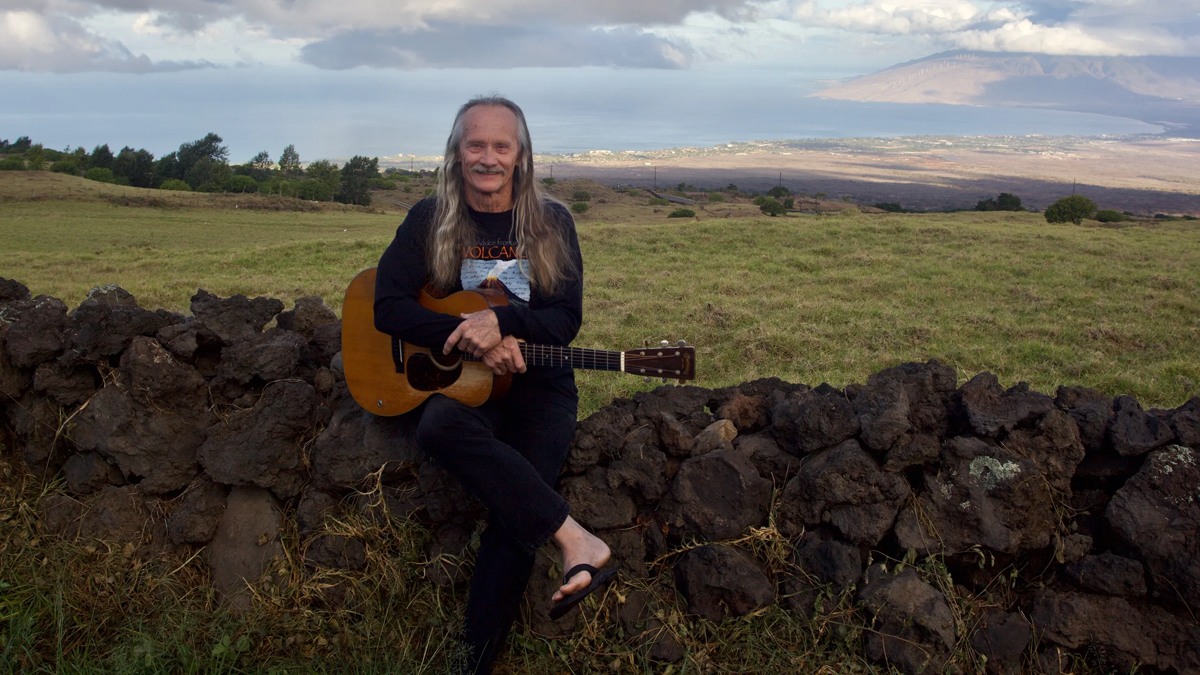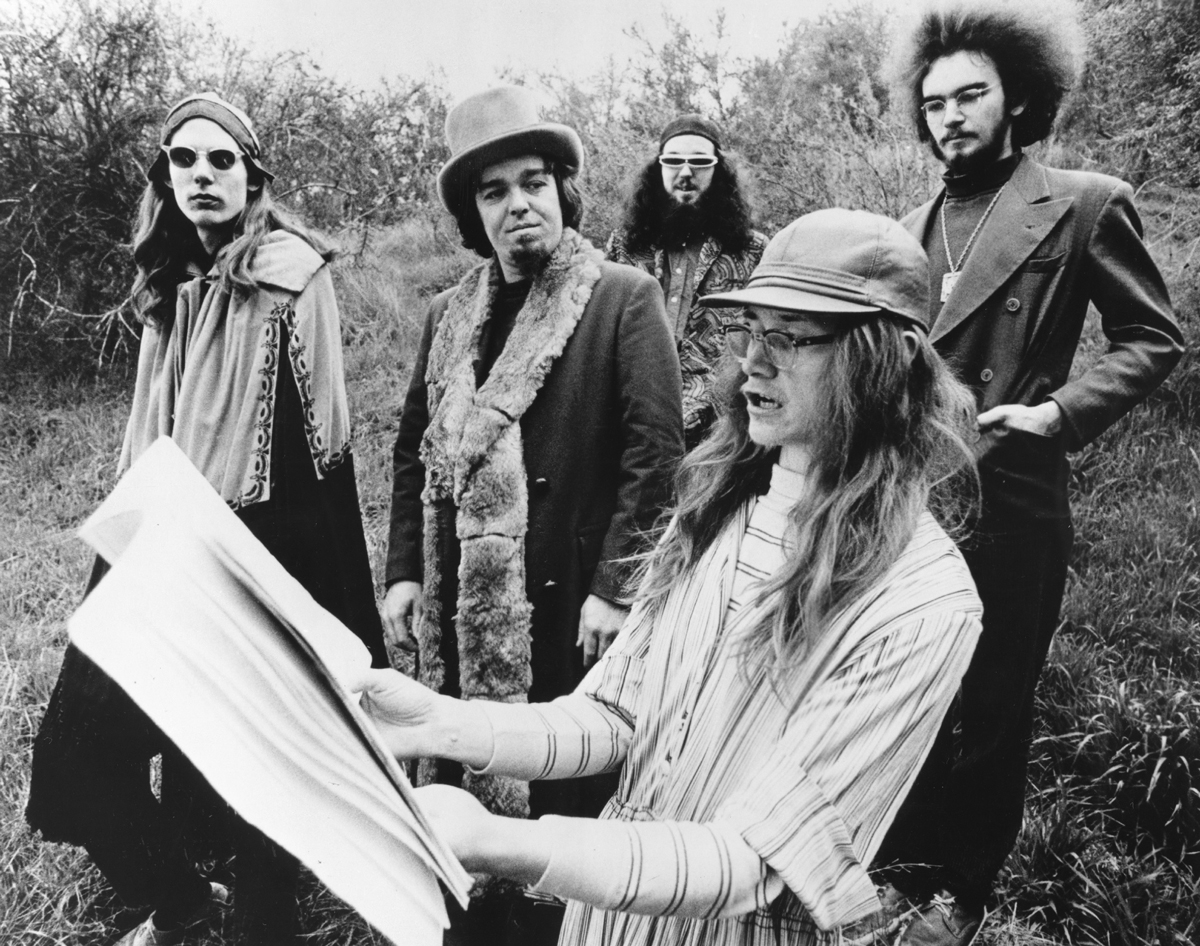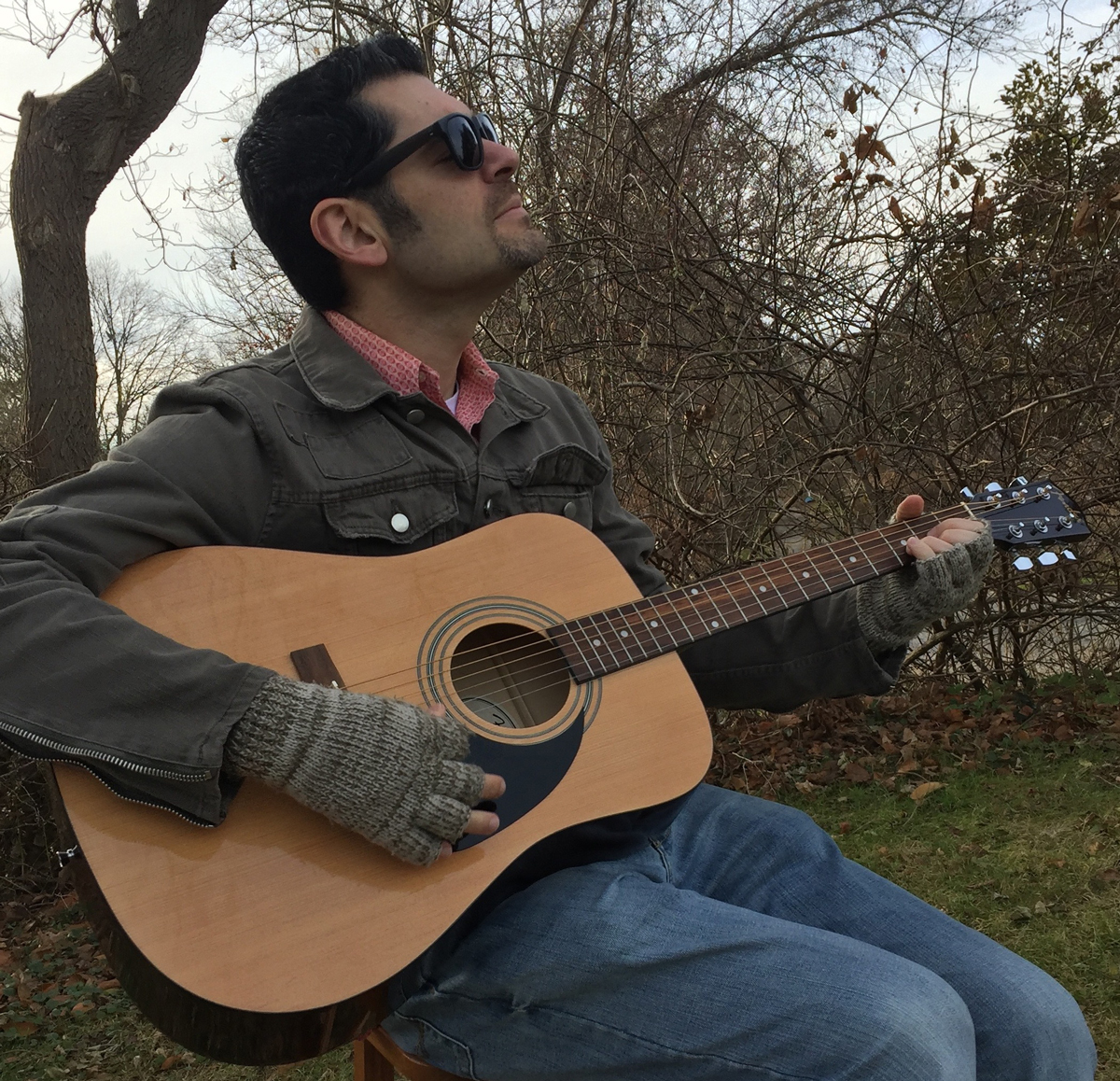Captain Beefheart guitarist Jeff Cotton talks jamming with Frank Zappa and "the eight months of emotional trauma" that went into making Trout Mask Replica
The former Captain Beefheart and His Magic Band guitarist looks back at recording one of the greatest experimental rock records of all time – and reveals what prompted him to return with his first new album in over 50 years

The third studio offering from Captain Beefheart and His Magic Band remains one of the most lauded rock albums of all time. A 1969 double LP produced by Frank Zappa, Trout Mask Replica explored a rich melting pot of styles from blues to jazz, rock and psychedelia.
And while it’s easy to focus primarily on the stream-of-conscious lyrics and oddball song titles courtesy of the late Captain Beefheart (real name: Don Van Vliet), it is the guitar work of Bill “Zoot Horn Rollo” Harkleroad and Jeff Cotton – or as he was credited on the album, “Antennae Jimmy Semens” – that truly propels the album.
But after the arrival of the cult classic Replica, Cotton exited the Magic Band, before reappearing with another project, MU (and a self-titled debut issued in 1971). However, shortly afterward, the guitarist would completely disappear from public view… until now.
August 2022 saw the release of Cotton’s first new music in over 50 years and his first-ever solo effort, the sprawling 22-track The Fantasy of Reality, which sees Cotton handling both lead vocal and guitar duties.
The Hawaii-based Cotton spoke with Guitar World shortly after the release of Reality, and discussed why he went MIA for the past few decades, his guitar setup for his new album, as well as the heaven and hell he experienced as a member of Captain Beefheart and His Magic Band.
What made you withdraw from the commercial music business for nearly 50 years?
I had been bottled up creatively for the two-and-a-half years that I was in the Magic Band
“After coming out of the Magic Band, I started my group, MU. That was a really exciting experience because I had been bottled up creatively for the two-and-a-half years that I was in the Magic Band. None of us were allowed to add anything – at least without Don’s knowledge.
Get The Pick Newsletter
All the latest guitar news, interviews, lessons, reviews, deals and more, direct to your inbox!
“So, in the later years of MU, speaking of God, I’m going to say ‘the one who loves’ – that’s how I’m going to refer to the creator – I got a really loud message in my ears. And it was this, basically: ‘It’s time, Jeff, for you to learn to live.’ And I’m going, ‘What does that mean? I’ve had so much fun and done all this stuff.’
“And as time went on, I got more, more. And it is: ‘Have a balanced life as a human being.’ I got married, have three beautiful children, had 43 years of a marriage.
“I didn’t leave the music scene – commercially, I did – but I always kept writing. We did some recording over the years, my wife and I, and we were a fantastic team, rhythmically.
“Many years, it was behind the scenes – we’d playing weddings and funerals for friends. We did a few concerts in Hawaii, a few clubs, and all original material. But basically, all these years I’ve been listening.
“And there came a time when I got my walking orders: ‘It’s time for you to get back into it.’”
Which tracks are you most proud of guitar-wise on The Fantasy of Reality?
“Guitar-wise, I like Ivy – it’s the classical solo. I like the solo in This Gentle Earth. On the Thread is one of my favorites – the instrumental that I would say is the closest to a Magic Band/Trout Mask song that I have on the album.
“If you think of Hair Pie: Bake 2 [from Trout Mask Replica], On the Thread has some similarities. It Would Take an Angel – the solo and the last verse. And Clean in Nature’s Stream – the last song on the album.”
What was your guitar setup for the recording?
“When I’m playing an open G tuning, I’m using my PRS [which is seven or eight years old] – it’s got nice big strings on it, great for bottleneck.
“And a Telecaster – this is my go-to, so much. My good friend, Phil Emerson, searched all over the US to get me what I needed, and I love this guitar. It’s not that old – maybe 10 years old. For solos and for stuff where you need small strings and a lighter touch, I used that.
“Actually, a lot of the album was recorded on a Gibson ES-335. What we did is we got the Epiphone Lucille, and Andre [Deslauriers] rebuilt this from the ground up – pickups, bridge, keys, everything. It’s hot. Even built the neck. It works really well for just about anything – lead and rhythm, or both together.
“I have a Fender Twin Reverb, and it’s an old one – really nice. I don’t use a lot of effects, but I love digital delay echo. Very little reverb, but I love the use of echo. I like a clean but explosive full sound – the Marshall sound. And I have a wah-wah which I’ve used once or twice, and a volume pedal [Cotton also used a Boss Compressor Sustainer CS-3 for overdrive].”

How did you and Captain Beefheart first cross paths?
“Back in probably ’66, we had one big hall called the Exposition Hall in the Mojave Desert, Lancaster – where we all grew up. We would play concerts there, and you could get 500 people in there.
“At that time, Blues in a Bottle was our group – it was made up of Mark Boston on bass, Bill Harkleroad on guitar, me on guitar, and John French on drums. So that was the Trout Mask lineup.
“We would play concerts when the Magic Band would play there. And probably the first time we gigged with them, Don was this guy who was always curious about these musicians – he wants to know what’s going on. If there’s somebody good, he wants to know it.
Here’s Frank and the engineer sitting there, gets his levels, we start playing. Halfway through the session, he falls asleep at the console – because there wasn’t anything for him to do!
“So, he came right up in front of us at the first gig, studying you, and the gears are going – he’s thinking, ‘He can replace Doug Moon,’ or something of that nature. That’s how we met – after we came off stage, at a gig.”
What do you recall about the recording of Trout Mask Replica?
“The recording itself was six-and-a-half hours that just went boom, like that. It was a very high, joyous occasion. One take, maybe two on some songs. It was a great experience.
“Frank Zappa footed the bill, so Don had complete creative control for the first time. So, here’s Frank and the engineer sitting there, gets his levels, we start playing. Halfway through the session, he falls asleep at the console – because there wasn’t anything for him to do! We’re doing our own dynamics, everything.
“So, we finish the album and we feel really good about it. What we’d done for nine months solid – eight, twelve hours a day – paid off, because we didn’t have to think about it.”
Did you ever go through anything as intense as the rehearsals for that album?
“It was eight months of emotional trauma. Beyond anything I could have imagined.”
What is the story behind your “Antennae Jimmy Semens” alias on Trout Mask Replica?
“At that time, there were two things I wanted to do. I wanted an antennae. So, that would be dreading my skull and putting in an antennae.
“And I also wanted my skin to be green. A nice light tint. And at the time, they could give you injections that would give it a green tint instead of a pink tint. So, that’s where Don came up with the ‘Antennae Jimmy Semens’ thing.
“I’m so glad I didn’t do that, because many years after that, I was a businessman, and I could see me as a banker – you come in and I have an antennae out of my head and my skin is green, and you’re supposed to take me serious?”
Why did you leave Captain Beefheart and His Magic Band?
“After Trout Mask, the hell resumed. The emotional hell. And then, we were rehearsing one day, and we had a stand-in drummer. We were rehearsing one morning and just started, and Don walks in as he would at about 10:00 or 11:00 in the morning – he never got up early, and would never rehearse with us.
The drummer gets off his throne, comes over, I’ve got my guitar on, and without any warning, he lifts his foot up and kicks me with the heel of his boot – as hard as he could – and I go flying
“But he came out, and stood about 10 feet away from this drummer, and he looks at the drummer and gives him ‘the eye’. The drummer gets off his throne, comes over, I’ve got my guitar on, and without any warning, he’s got cowboy boots on, and he lifts his foot up and kicks me with the heel of his boot – as hard as he could – and I go flying.
“Well, I wound up with a punctured lung, in LA County General Hospital. I went, ‘That’s it. Not for me.’ The next morning, my father came down from Lancaster, Mojave Desert, picked me up, took me home, and that became the beginning of my healing process.”
Any good Frank Zappa stories?
“We got to play together and do a little jamming. I was doing bottleneck. I’d rather play less notes – more feeling in the notes. So, I’d be doing my ‘bottleneck Delta,’ and he’d be playing notes all around me. That was really fun.
“But I think the greatest story is when I did the vocal for The Blimp. Because Don had just finished the lyrics – we had worked all night on it. He said, ‘Let’s call Frank. I want him to hear this.’
“Call him, and he said, ‘Wait a minute.’ He brought back a piece that the Mothers were working on. He didn’t tell me, he just said, ‘Go!’ So, he put it on and I recorded through the phone. That’s why they say, ‘This is recorded through a fly’s ear and you have to have a fly’s eye to see it.’”
Which songs that you played with Beefheart are your favorite?
“On Strictly Personal, it would be Trust Us. There’s a delta blues on here, too [Gimme Dat Harp Boy] – it’s like Spoonful.
“When you come to Trout Mask, I love Steal Softly Thru Snow. My Human Gets Me Blues would probably be number one. And the guitar work that Bill and I did together on Dali’s Car is just the two of us – we literally fit together like a glove.”
What are your future plans?
“To continue to record. We have the second and third albums near-finished. And they just go on from this – on to another level. I think lyrically they may even be clearer and more appropriate for the times.
“And of course, I’d love to play live – there’s nothing like it.”
- The Fantasy of Reality is out now via Madfish.
Greg is a contributing writer at Guitar World. He has written for other outlets over the years, and has been lucky to interview some of his favorite all-time guitarists and bassists: Tony Iommi, Ace Frehley, Adrian Belew, Andy Summers, East Bay Ray, Billy Corgan, Alex Lifeson, Geddy Lee, Les Claypool, and Mike Watt, among others (and even took lessons from John Petrucci back in the summer of ’91!). He is the author of such books as Grunge Is Dead: The Oral History of Seattle Rock Music, Shredders: The Oral History of Speed Guitar (And More) and Touched by Magic: The Tommy Bolin Story.
“I was in a frenzy about it being trapped and burnt up. I knew I'd never be able to replace it”: After being pulled from the wreckage of a car crash, John Sykes ran back to his burning vehicle to save his beloved '76 Les Paul
“His songs are timeless, you can’t tell if they were written in the 1400s or now”: Michael Hurley, guitarist and singer/songwriter known as the ‘Godfather of freak folk,’ dies at 83










